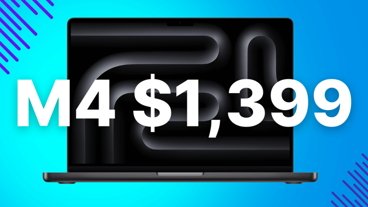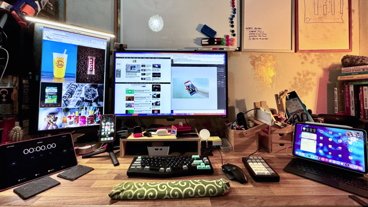In a note to investors Tuesday, analyst Yair Reiner with Oppenheimer Research said industry checks indicate that, starting in January, Apple launched a level of discussions with top handset makers to "underscore its growing displeasure at seeing iPhone-related IP infringed."
"The lawsuit filed against HTC thus appears to be Apple's way of putting a public, lawyered-up exclamation point on a series of blunt conversations that have been occurring behind closed doors," Reiner wrote.
He added: "Rival software and hardware teams are going back to the drawing board to look for work-arounds. Lawyers are redoubling their efforts to gauge potential defensive and offensive responses. And strategy teams are working to chart OS strategies that are better hedged."
Apple began actively protecting its patents, the note alleges, in January 2009, when a conference call took place in which the iPhone maker said it would not stand for having its intellectual property — specifically, multi-touch functionally — "ripped off." Apple reportedly threatened to use "whatever weapons we have at our disposal."
The threats worked, as handset manufacturers declined to add multi-touch functionality to their phones that were released soon after. But as the year progressed, a number of companies began to release multi-touch capable devices, which caught the ire of Apple.
The analyst said Apple's conversations have created "an effective oil slick" for competitors, as the Cupertino, Calif., company has clearly stated it intends to protect all of the aspects of the iPhone that make it unique, including touch gestures.
Apple's moves have caused some phone manufacturers, Reiner said, to reconsider their wholehearted embrace of the Android mobile operating system platform created by Google.
"The HTC suit, which is recognized as a proxy battle against Google, is causing OEMs to re-examine the strategy of relying overmuch on Android, lest it prove vulnerable in terms of core IP," he wrote. "This concern comes atop pre-existing misgivings about Google's end-game in wireless. (to commoditize the OEMs? To arrogate all value-added services?)"
The conflict, Reiner said, has created an opportunity for Microsoft's newly unveiled Windows Phone 7 Series, due to launch this fall. Microsoft has also told potential customers it would support them legally if they, like HTC, were hit with a lawsuit over intellectual property.
Reiner also cautioned that Apple's approach could backfire if taken too far, as entering into a legal battle with some of the biggest names in the cell phone business would be unwise.
"Apple's legal maneuvering appears to have temporarily retarded its rivals' hot pursuit of the iPhone," Reiner said. "But it also brings Apple a step closer to a head-on legal confrontation with an array of gargantuan adversaries. Now that it has made its point, Apple may want to go back to saber rattling."
Last week, Apple sued HTC over the alleged infringement of 20 patents related to the iPhone's user interface, underlying architecture and hardware. Apple cited some of HTC's most popular handsets, including the Google Nexus One, as infringing on patents it owns. The lawsuit made a clear distinction between Android phones and those powered by Windows Mobile.
Apple is also engaged in a legal battle with smartphone giant Nokia, as Nokia first sued Apple last October, while the iPhone maker countersued in December. Nokia has accused Apple of violating patents related to GSM and wireless LAN technology, while Apple has alleged that its Finnish rival has infringed on 13 patents it owns.
 Neil Hughes
Neil Hughes






-m.jpg)






 Christine McKee
Christine McKee
 Malcolm Owen
Malcolm Owen

 Sponsored Content
Sponsored Content

 Amber Neely
Amber Neely











121 Comments
Go Apple!
"But it also brings Apple a step closer to a head-on legal confrontation with an array of gargantuan adversaries. Now that it has made its point, Apple may want to go back to saber rattling."
Nonsense. Saber-rattling is non-credible unless you can back it up with action.
'Gargantuan'? Who specificially?
Apple's cash pile alone is more than the market cap of many of these 'gargantuan adversaries.'
Hardly surprising!
Apple not having a legal strategy would be ridiculous. All their work in all areas follows very precise strategies.
Nonsense. Saber-rattling is non-credible unless you can back it up with action.
'Gargantuan'? Who specificially?
Apple's cash pile alone is more than the market cap of many of these 'gargantuan adversaries.'
I can't believe they get paid to say this stuff...
Hardly surprising!
Apple not having a legal strategy would be ridiculous. All their work in all areas follows very precise strategies.
apple really doesn't want to get into a 'multitouch' legal nightmare. they will have their patent invalidated. this is just scare tactics. if they proceed this could really back fire.